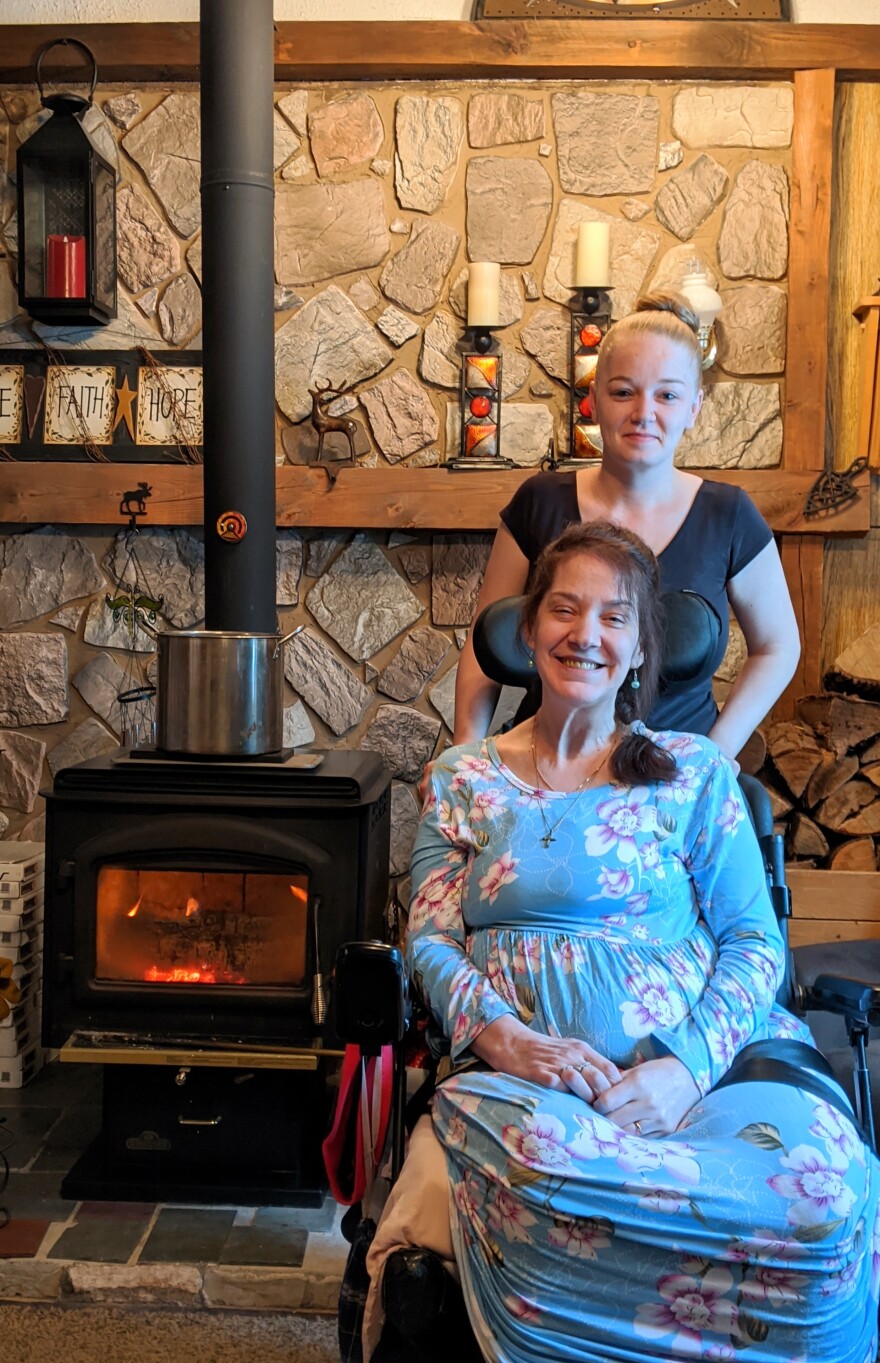Thousands of people went to the polls yesterday to vote in New Hampshire's first in the nation primary.
Charles Cooper wasn't one of them.
In the past few months, many of the candidates running for the Democratic presidential nomination have passed through the studios of New Hampshire Public Radio, on the top floor of an office building in Concord.
'I cannot vote because I'm not a U.S. citizen. I'm an immigrant. I don't have any right to vote.'
On their way to the elevator, they had to pass by the Pillsbury Cafe and Pantry, owned by Cooper and his wife Jill.
Cooper is pretty sure he’s served a few major candidates and staff. He says he recognizes them by the posse around them.
“I focus on what I need to do. I got a business to run. I got a job to do. I just try to get it done every day, regardless who is here or not. For me it doesn’t really matter. They’re just people,” he says.
But while Cooper has come closer to the primary than most people get, even in New Hampshire - he didn’t vote yesterday.
“I cannot vote because I’m not a U.S. citizen. I’m an immigrant. I don’t have any right to vote.”
'I’m not going to vote because I don’t think there’s any candidate worth voting for right now.'
Cooper is originally from Ghana and came to the U.S. through Liberia. He hasn’t gone through the full citizenship process. And even if he could vote, he’s not sure he would. He says it’s hard for him to know what’s going on in politics when candidates make so many promises.
“I know you can't please everybody. But who is it gonna benefit? Is it gonna benefit the little person, or is it gonna benefit the big guys?” he asks.
(Related coverage: Click here for more information on how to vote in New Hampshire.)
At a park in Manchester, two people were asking similar questions.
Christopher Rimmel and his friend sat talking on a bench in Veteran’s Park in Manchester.
“Big money runs the world anyways."
“Ouch.”
“It’s the truth.”
“Can I get a what what!”
On this sunny, 22 degree afternoon a few days before the primary, signs of the election were very close. Just half a block away, were Trump protestors, cable news tents, and canvassers.
But, Rimmel said, he wasn’t planning to vote.
“I’m not going to vote because I don’t think there’s any candidate worth voting for right now.”
Rimmel is staying in transitional housing. Advocates say people in situations like his can have trouble voting or demonstrating proof of residency at the polls. New Hampshire's voting laws still allow people to vote even if they don't have all of the right documents, and election officials have been explicitly told not to turn any prospctive voters away for lack of paperwork — but Rimmel says it’s about more than that. He didn’t connect to any of the candidates and the primary doesn’t affect his life at all.
“It’s not gonna change, like, I am gonna vote this year, I’ve already decided who I’m going to vote for, and it’s not going to be that guy.”
In November, Rimmel says, he plans to vote against President Trump.
Along with the many Democratic candidate events over this week, the President also made an appearance in the state. Joyce Thomas would have liked to have attended his rally. She recalled meeting President George H.W. Bush at UNH, in 1992.

“And I was more excited to go there than I can even say,” she remembered. “That’s one of my cherished memories. I asked him to come to New Hampshire and come fishing with me and he shook my hand and said, ‘Absolutely.’”
But now, it’s not easy for her to get to campaign events or the polls. Thomas has multiple sclerosis. “I have a very hard time when it comes to being able to go out and vote,” she said.
Thomas lives in Hillsborough. Her husband works full-time, leaving early and coming home late, so, Thomas says, there’s no time to get a ride to the polls.
Her caregiver, Susan Allen, says one the reasons is the challenge of transportation. Thomas’ motorized wheelchair doesn’t fit in the car, and public transportation isn’t possible either.
“There’s not that many buses that come through, and if there is, you have to make a special appointment. And with a day like today, it’s already packed,” Allen said.
New Hampshire allows people to cast an absentee ballot if they have a disability that makes it difficult for them to leave their homes on Election Day. But Thomas says she struggled with the absentee voting process, and she wishes she could have voted.
But yesterday, on Primary Day, Joyce Thomas wasn’t able to leave the house.
Editor's note: This story has been updated to include additional information on New Hampshire's voting laws.









